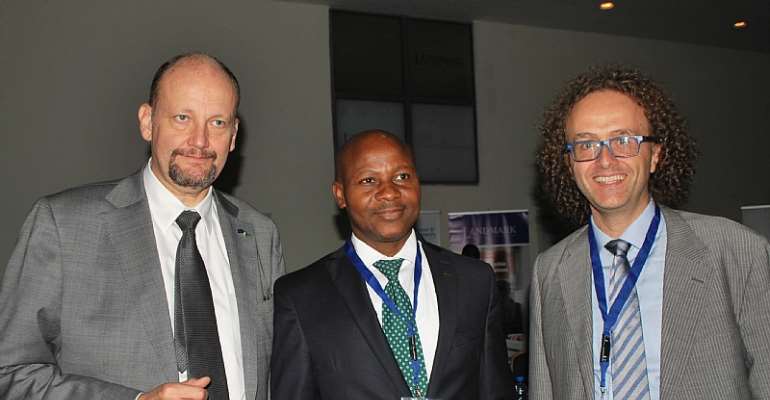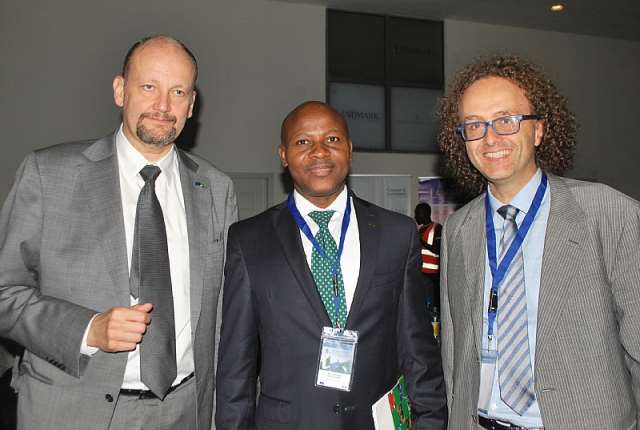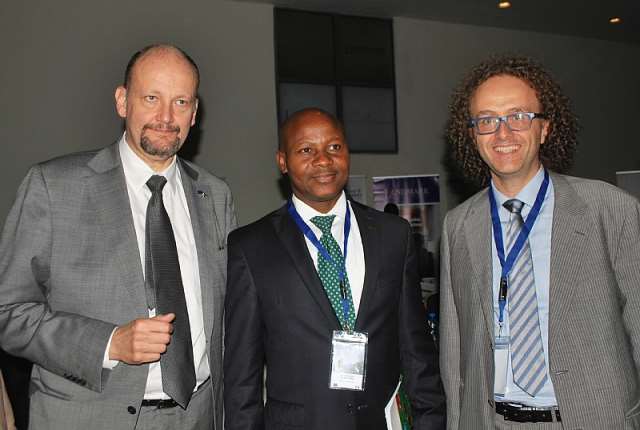SPEECH DELIVERED BY AMBASSADOR MICHEL ARRION AT THE EU-NIGERIA BUSINESS FORUM 22-23 SEPTEMBER 2014.

Protocols,
It gives me great pleasure to welcome you all to the 3rd EU-Nigeria Business Forum (EUNBF), a joint venture between the EU, its Member States and Nigerian partners (the National Planning Commission and the National Competitive Council of Nigeria in particular) which this year will focus on the common EU/Nigeria economic agenda and the role private sector can play in supporting it. Within this framework, the Forum will also act as platform for private sector participants to identify business opportunities and connect with key players.
Private-sector led and responsible investment, notably in respect of infrastructure, energy and value adding chains in agriculture is becoming a key aspect of EU Africa relations. The 4th EU-Africa Summit which was held in Brussels in April set this as a priority for the future. The Forum is also in line with the objectives of the Economic Partnership Agreement (EPA) which was endorsed by ECOWAS Heads of States at their Summit in Accra on 10 July and which is intended to attract more EU investments to the region.
EU Foreign Direct Investment (FDI) stock in Nigeria grew from €25.3 billion (N5.3tr) in 2011 to €27.2 billion (N5.7tr) in 2012. The EU is also Nigeria's most important trading partner. In 2013 alone total EU-Nigeria trade stood at €40.4 billion (N8.5tr). EU imports from Nigeria were valued at €28.7 billion (N6tr) while EU exports to Nigeria stood at €11.8 billion (N2.5tr). Though Nigeria maintains a positive trade balance with the EU and the EU remains the biggest market for both oil and non-oil exports (such as leather cocoa, sesame, etc.), it is imperative to address the EU- Nigeria relationship towards a more diversified composition and a strengthened ECOWAS regional market.
The European Union is the most accomplished example of regional integration at work. Integration has led to competitiveness within the Union, removal of obstacles to free movement of goods, services and peple and led to greater prosperity for EU citizens. Nigeria is the largest economy in Africa and the industrial hub of West Africa. Nigeria must see the West African market as an extension of its domestic economy because Nigeria stands to be the greatest beneficiary of an integrated West African market. This is what the EPA seeks to achieve; consolidation of the regional markets, promotion of regional trade, removal of barriers to trade while protecting sectors that are considered sensitive to the economies of the ECOWAS member states. We must understand that it is not a bilateral but a regional issue and Nigeria must seize the leadership role and drive this integration.
At this juncture, let me commend the ECOWAS Heads of States for the signing of the treaty on the Lagos-Abidjan corridor. As we know 70% of the commercial traffic in the region takes place within this corridor. The signing of this treaty marks a significant milestone towards fostering true regional integration in West Africa.
Though according to UNCTAD last available statistics, Nigeria has dropped from the top position in attracting FDI to the continent, inflows still remain significant. To attract more investments into the country, policies should be broad based and long term in outlook and not focused on satisfying individual short term interests, while the Courts and rule of law in general protect individuals, assets and contracts.
Through our development cooperation, the EU is working closely with the Nigerian authorities to improve its business environment and competitiveness, boosting its industrial revolution agenda through support to the reform of the electricity sector and accessing long term financing and tackling social issues like malnutrition. This is what informed the selection of the panel discussions which will be taking place on Business Climate, Electricity, Health and Nutrition and Access to Finance. The objective is to find a meeting point for the private sector to leverage on the grants provided by the EU to these sectors.
Finally, I wish to commend the Nigerian authorities on the effective containment of the Ebola crisis. Our decision to continue with this event despite the initial fear that greeted the first Ebola case is a testament to our confidence in the ability of the Nigerian authorities to contain the spreading of the virus.
Nigeria's image is unfortunately tarnished by the insurgency in the North east, and other security threats. We cannot deny the gravity of the current challenges but it is also important that we portray Nigeria's positive side, most of which lies in its thriving economic, social and cultural life.
I look forward to interacting with you during the networking sessions. With these few words I would like to once again welcome you and wish you fruitful deliberations in these two days.
Thank you
Michel Arrion


